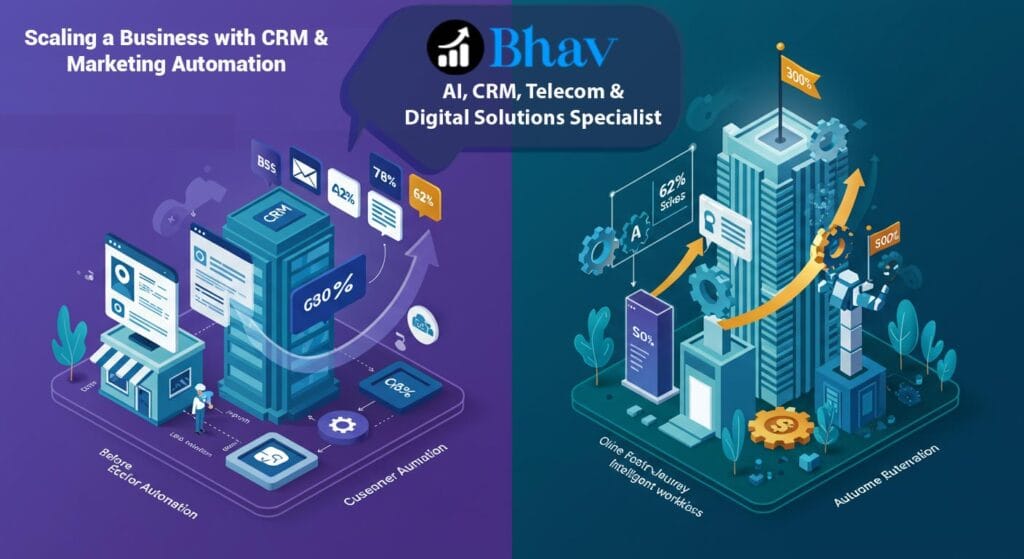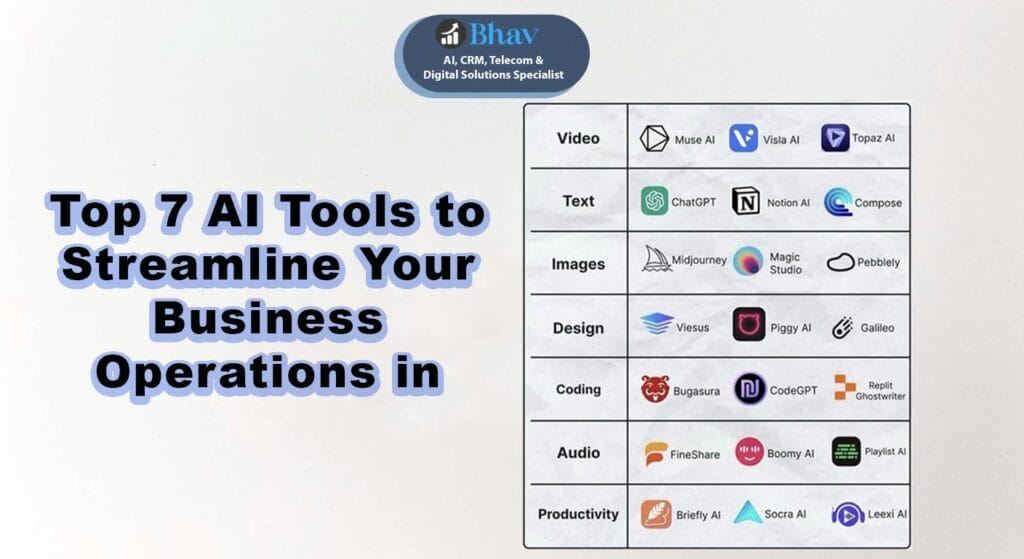
Understanding CRM: What Is It?
Customer Relationship Management (CRM) refers to a strategy used by businesses and organizations that focuses on recording, analyzing, and utilizing customer interactions throughout the customer lifecycle. The primary goal of CRM is to improve customer service relationships, thereby streamlining processes for increasing customer retention and, ultimately, driving sales growth. By effectively managing customer data and information, businesses can foster stronger relationships with their clients.
At its core, CRM systems are designed to help organizations manage customer data, track interactions, and process transactions. These systems enable businesses to collect and organize customer information, such as contact details, purchasing history, and preferences, allowing for greater personalization of services. Enhanced customer satisfaction is achieved when businesses can provide tailored experiences, which in turn boosts loyalty and repeat engagements.
Key features of CRM software include contact management, sales tracking, and reporting. Contact management allows businesses to store and manage customer details in one accessible location, facilitating better communication and relationship-building. Sales tracking helps businesses monitor leads, opportunities, and conversions, allowing them to refine their sales strategies over time. Reporting tools provide insights into customer behaviors and sales performance, enabling data-driven decisions that can enhance business outcomes.
Furthermore, CRM systems often incorporate automation capabilities, which reduce manual tasks associated with customer interactions. This efficiency not only increases productivity but also ensures that customer information is kept up-to-date and accurate. By integrating CRM with other business tools, such as marketing automation and customer support systems, organizations can create a seamless experience that enhances overall effectiveness. Ultimately, CRM solutions are vital for any business aiming to cultivate a loyal customer base and achieve sustainable growth.
The Importance of Scaling a Business
Scaling a business is a crucial process that enables organizations to increase revenue while maintaining or reducing operational costs. This strategy is essential for growth, sustainability, and gaining a competitive edge in today’s dynamic market environment. As businesses strive to meet the demands of an expanding customer base, effective scaling becomes a pivotal aspect of their long-term success.
The significance of scalability lies in its capacity to support more customers and transactions without a proportional increase in costs. For instance, a software company that employs cloud-based solutions can scale its services to accommodate a larger clientele seamlessly. By leveraging technology, businesses can develop their offerings, reaching new markets without having to invest heavily in physical infrastructure or additional staff. This ability to expand while managing costs positions companies favorably against competitors, ultimately leading to increased profitability.
Moreover, sustainability is heavily influenced by a company’s capacity to scale effectively. Business models rooted in scalability can adapt to changing market conditions, allowing organizations to pivot strategies when necessary. Companies like Amazon and Netflix exemplify this adaptability; they have successfully scaled their operations by continuously evolving their service offerings and optimizing their logistics, which has helped them thrive in highly competitive landscapes.
Conversely, businesses that struggle to scale may find themselves constrained by resource limitations, hindering their ability to seize new opportunities swiftly. This often results in stagnation or even decline, particularly in rapidly changing industries. Understanding the importance of scaling is paramount for businesses aiming to remain relevant and resilient. By establishing a strategic focus on scalability, organizations can facilitate sustained growth, optimize operational efficiency, and position themselves for future success in the marketplace.
How CRM Facilitates Business Growth
Customer Relationship Management (CRM) systems play a pivotal role in facilitating business growth by providing organizations with the tools required to improve customer interactions and streamline processes. One of the primary benefits of CRM implementation is the enhancement of customer insights. With a CRM system, businesses can gather and analyze data about their customers’ preferences, behaviors, and purchasing patterns. This data allows companies to create more personalized experiences, ultimately leading to increased customer satisfaction and loyalty.
Moreover, CRM systems help streamline various business processes, enabling teams to work more efficiently. By centralizing customer data and automating repetitive tasks such as follow-ups, lead tracking, and reporting, businesses can reduce the time spent on administrative tasks. This not only improves the overall efficiency of the team but also allows them to focus on higher-value activities such as building relationships and closing deals. As a result, organizations are likely to see increased productivity and, subsequently, business growth.
CRM systems also enhance marketing strategies by providing vital information that helps in targeting the right audience. With detailed analytics and segmentation capabilities, businesses can tailor their marketing campaigns based on specific customer profiles and behaviors. This targeted approach ensures that marketing efforts are more effective and cost-efficient, resulting in higher conversion rates. Furthermore, by tracking customer engagement and feedback through the CRM, businesses can continuously refine their marketing strategies, thereby improving their ROI over time.
In essence, the implementation of a CRM system is directly correlated with business growth, as it enhances customer insights, streamlines operations, and bolsters marketing strategies. The result is a more agile organization that can adapt quickly to market changes, cater better to customer needs, and ultimately achieve sustained growth. Integrating CRM into business practices is not just beneficial; it is essential for companies aiming for long-term success in today’s competitive landscape.
Choosing the Right CRM for Your Business
In the evolving landscape of customer relationship management, selecting the appropriate CRM software becomes crucial for a business’s success. The right CRM can significantly enhance efficiencies, improve customer relationships, and ultimately drive revenue growth. There are several factors to consider when evaluating various CRM systems, as different business types and sizes will have unique requirements.
Firstly, user-friendliness is paramount. A CRM should possess an intuitive interface that facilitates easy navigation and minimizes the learning curve for employees. This is particularly important for small to medium-sized enterprises (SMEs) where staff may wear multiple hats and lack dedicated IT resources. A user-friendly CRM helps ensure higher adoption rates and less frustration among team members, which can contribute positively to overall productivity.
Scalability also plays an essential role in choosing a CRM. As businesses grow, their needs evolve, and a CRM must adapt accordingly. Hence, look for solutions that offer flexible plans and functionalities that can expand with your business. This may include options for increased user access, enhanced features, or additional modules tailored to your industry.
Integration capabilities cannot be overlooked either. The ability of CRM software to seamlessly integrate with existing tools (such as email marketing platforms, accounting systems, or e-commerce applications) is vital. This connectivity enhances data consistency and streamlines processes, making it easier for teams to collaborate and access pertinent information.
Lastly, cost-effectiveness should guide your decision-making process. Compare the features offered by various CRM solutions against their pricing. This involves assessing not just the initial costs but also potential ongoing expenses, including maintenance, training, and additional functionalities. Striking a balance between a robust feature set and affordability will ensure that your investment in CRM technology yields substantial returns.
Implementing CRM Strategies for Successful Scaling
As businesses strive for growth, implementing effective Customer Relationship Management (CRM) strategies becomes crucial for successful scaling. A well-executed CRM plan can streamline processes and enhance customer engagement, ultimately driving revenue. One of the first steps in leveraging CRM tools is data migration. This involves transferring existing customer data from previous systems into the new CRM platform. It is essential to ensure data integrity during the migration process, as accurate and clean data serves as the foundation for effective customer relationship management.
Alongside a seamless data migration, user training is paramount. Employees must be equipped with the knowledge and skills to utilize the CRM system effectively. Investing in comprehensive training sessions and resources can help team members understand the tools available to them and how to leverage these features for better customer interactions. By fostering proficiency in the CRM platform, businesses can enhance productivity and encourage a more extensive application of CRM strategies.
Setting clear goals is another critical component when implementing CRM strategies. Businesses should establish specific, measurable, achievable, relevant, and time-bound (SMART) objectives that align with their overall growth plans. This ensures that the CRM implementation process is focused and results-driven, allowing teams to track progress and make adjustments as needed. Moreover, cultivating a customer-centric culture within the organization cannot be overlooked. By emphasizing the importance of customer satisfaction and fostering an environment where employees prioritize customer needs, businesses can harness the full power of CRM tools.
In conclusion, effectively implementing CRM strategies involves a systematic approach to data migration, robust user training, clear objective setting, and the nurturing of a customer-centric culture. By focusing on these aspects, businesses can maximize their CRM investment and facilitate sustainable growth during the scaling process.
Case Studies: Success Stories of CRM in Scaling Businesses
Many organizations have turned to Customer Relationship Management (CRM) systems to navigate the complexities of scaling their operations successfully. Examining specific case studies provides invaluable insights into how CRM has transformed challenges into strategic advantages.
One notable example is a mid-sized e-commerce company facing a stagnating growth rate due to inefficiencies in customer communication. Initially, their approach was reactive, responding to customer inquiries and feedback only after problems arose. To address this, they implemented a cloud-based CRM system that integrated customer data across multiple platforms. This allowed them to identify customer buying patterns and preferences proactively. As a result, they personalized the customer experience, ultimately increasing their sales by 30% within a year.
Another compelling case is that of a regional manufacturing firm that struggled with lead management and sales tracking. Their traditional methods resulted in missed opportunities and lack of follow-up on leads. After integrating a CRM solution, they automated their lead nurturing process, which drastically improved their conversion rate. The CRM’s analytics tools enabled the sales team to pinpoint the most promising leads, leading to a 25% increase in sales during their first quarter post-implementation.
Furthermore, a service-oriented business in the healthcare sector utilized CRM to improve patient relationships and streamline appointment scheduling. By adopting a CRM system that included a patient portal, they enhanced communication and accessibility. This transformation increased patient retention rates and improved overall satisfaction, reflecting a notable 40% growth in their patient base over two years.
These case studies illustrate the diverse applications of CRM in various industries and emphasize how a well-executed CRM strategy can significantly contribute to a business’s success. The examples demonstrate that by addressing specific challenges through tailored CRM solutions, companies can realize substantial growth and enhance customer satisfaction efficiently.
Common Challenges and Solutions in CRM Implementation
Implementing a Customer Relationship Management (CRM) system can significantly enhance a business’s ability to manage customer interactions and data. However, many organizations encounter common challenges during this process that can hinder the effectiveness of their CRM initiatives. One prevalent issue is resistance to change, which often arises from employees who are accustomed to existing processes. To combat this, it is crucial to foster a culture of open communication and inclusivity. By involving staff in the decision-making process and providing adequate training, businesses can facilitate smoother transitions and cultivate acceptance of the new CRM system.
Another challenge commonly faced is data management issues. Effective CRM systems rely heavily on accurate and organized data to provide meaningful insights. Businesses often struggle with data migration, integration, and cleaning, which can lead to incomplete or inaccurate information within the system. To address these challenges, companies should invest in thorough planning and implement strict data governance policies. Utilizing automated tools for data cleansing and integrating proper data entry protocols can greatly enhance data quality, ensuring that the CRM system functions optimally and delivers actionable insights.
User adoption remains a significant hurdle for many organizations. Employees may find new technology overwhelming or complicated, deterring them from utilizing the CRM to its full potential. To ensure user adoption, businesses should prioritize providing comprehensive training sessions that cater to different learning styles. Creating user-friendly interfaces and offering ongoing technical support can significantly improve employee engagement with the CRM. Additionally, showcasing the benefits of the system, such as enhanced productivity and greater customer satisfaction, can motivate employees to embrace the new tools at their disposal.
Measuring the Success of Your CRM Implementation
Effectively measuring the success of a Customer Relationship Management (CRM) implementation is crucial for ensuring the system delivers the expected benefits to the organization. By evaluating key performance indicators (KPIs) and metrics, businesses can gain insights into customer satisfaction, sales growth, and operational efficiency. These metrics not only provide a quantitative assessment of the CRM’s effectiveness but also highlight areas for improvement.
One of the primary KPIs to consider is customer satisfaction, often gauged through surveys and feedback mechanisms. Tracking metrics like Net Promoter Score (NPS) or Customer Satisfaction Score (CSAT) can provide valuable insights into how well the CRM aligns with customer needs. A high customer satisfaction score typically indicates that the CRM is successfully enhancing customer interactions and support, leading to stronger relationships.
Sales growth is another critical metric to monitor post-CRM implementation. By analyzing sales data before and after the deployment of the CRM, businesses can determine whether there has been a significant increase in revenue attributable to improved customer engagement and more efficient sales processes. Metrics such as sales per representative and conversion rates can offer further granularity in assessing the impact of CRM on sales performance.
Operational efficiency should also be evaluated, as a successful CRM should streamline internal processes. Metrics such as average response time, resolution time for customer inquiries, and team productivity can provide insights into how well the organization has optimized workflows with the help of the CRM. Reduced operational bottlenecks and improved employee performance often correlate with a well-implemented CRM system.
By focusing on these key performance indicators, businesses can comprehensively assess the success of their CRM system, allowing for strategic adjustments and continuous improvement in customer relationship management.
Emerging Trends in CRM and Business Scaling
The landscape of Customer Relationship Management (CRM) is undergoing significant transformation, driven by advancements in technology and the evolving needs of businesses. One of the most notable trends is the integration of artificial intelligence (AI) into CRM systems. AI-powered solutions enable businesses to harness data from various touchpoints, providing valuable insights into customer behavior. This predictive capability allows companies to tailor their marketing strategies and enhance customer interactions, ultimately contributing to more effective scaling.
Automation is another critical trend reshaping CRM. Businesses are increasingly adopting automated processes to streamline workflows, enhance efficiency, and reduce human errors. By automating repetitive tasks, such as data entry and lead nurturing, companies can allocate resources more effectively, allowing employees to focus on strategic initiatives rather than mundane tasks. This increased efficiency can significantly support the scaling of operations, as businesses can manage a larger customer base without a corresponding increase in operational overhead.
Moreover, the rise of data analytics is transforming how businesses approach customer relationships. Advanced analytics tools enable organizations to analyze vast amounts of data and uncover insights that were previously unattainable. These insights can inform product development, marketing campaigns, and customer service strategies, allowing companies to align closely with market trends and consumer preferences. This data-driven approach to CRM not only enhances customer satisfaction but also provides businesses with the agility required to scale effectively.
As we look ahead, the convergence of AI, automation, and analytics presents an exciting opportunity for businesses seeking to scale through CRM systems. By embracing these technologies, organizations can create a more personalized customer experience while streamlining their operations. The future of CRM promises to be not only about managing relationships but also about leveraging technology to drive growth and innovation.
Latest Insights
No Posts Found




